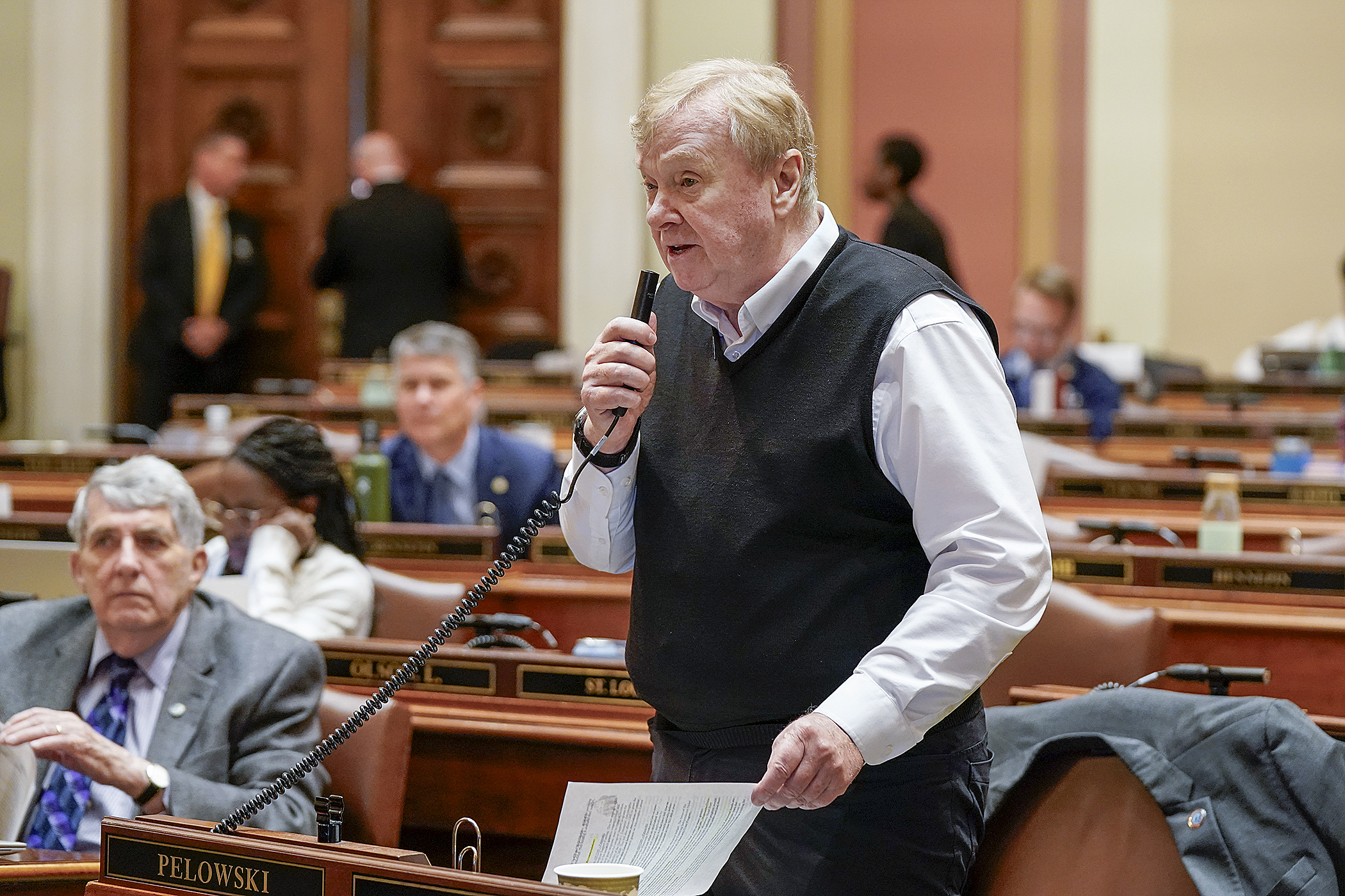House rejects flurry of campus protest amendments, passes higher education budget bill

May is a time when people pay a little more attention to what’s happening on college campuses, what with graduations and other year-end activities. But interest is much stronger in 2024 because of student protests and encampments at the country’s colleges and universities.
The focus of those protests is generally how a school invests its funds, and if weapons manufacturers (specifically, those doing business with Israel) are part of their portfolio.
The protests clearly colored most of the amendments unsuccessfully offered to HF5299, the House higher education supplemental budget bill. Sponsored by Rep. Gene Pelowski, Jr. (DFL-Winona), that bill was passed 69-58 by the House Tuesday evening and is on its way to the Senate.
The bill comes down to two priorities: Getting students who have been in foster care enrolled at the state’s public colleges and establishing Head Start child care and early education centers on those campuses and funding them with the bill’s relatively modest spending target of $500,000 for the current biennium.
The other key provision in the bill would take $5 million from the North Star Promise scholarship program designed to make tuition free for some students at Minnesota’s public colleges and universities and transfer it to the cash-strapped Fostering Independence grant program.
It also would re-appropriate $396,000 of funds left over from fiscal year 2023 to create a total of $19.6 million in the current fiscal year for research grants on amyotrophic lateral sclerosis (ALS, or Lou Gehrig’s disease).
The bill would also require additional registration and licensure fees for colleges and universities that need multiple revisions or corrections in their applications to the Office of Higher Education and would increase the bonding authority of the Higher Education Facilities Authority, which provides nonprofit private colleges and universities with conduit financing for large-scale capital projects.
[MORE: What’s in the bill and view the spreadsheet]
The House entertained eight proposed amendments and rejected them all. Three were inspired by current student protests:
- expelling demonstrators;
- making students ineligible for financial aid if they engage in racial, political or religious bias; and
- transferring the bill’s appropriation to cleanup after demonstrations.
Rep. Marion Rarick (R-Maple Lake) unsuccessfully proposed an amendment that would have re-channeled the bill’s $500,000 appropriation to directly set up child care centers on Minnesota State campuses, rather than partnering with Head Start, and proposed an “Intellectual Freedom Protection Act” with multiple prohibitions on conditions for faculty members.
Rep. Peggy Scott (R-Andover) proposed an amendment without success to withhold funding from the University of Minnesota and Minnesota State if either supports diversity, equity or inclusion and another that would impose a three-year, post-graduation residency requirement for North Star Promise scholarship recipients. And Rep. Mary Franson (R-Alexandria) proposed an amendment saying North Star Promise recipients must be “legally residing or lawfully present in Minnesota.” It, too, failed.
“Eleven of our campuses already have child care centers and only four of them have chosen to partner with Head Start,” said Rep. Kristin Robbins (R-Maple Grove). “There’s a lot we could have spent that $500,000 on and we are missing the mark.”
Related Articles
Search Session Daily
Advanced Search OptionsPriority Dailies
Speaker Emerita Melissa Hortman, husband killed in attack
By HPIS Staff House Speaker Emerita Melissa Hortman (DFL-Brooklyn Park) and her husband, Mark, were fatally shot in their home early Saturday morning.
Gov. Tim Walz announced the news dur...
House Speaker Emerita Melissa Hortman (DFL-Brooklyn Park) and her husband, Mark, were fatally shot in their home early Saturday morning.
Gov. Tim Walz announced the news dur...
Lawmakers deliver budget bills to governor's desk in one-day special session
By Mike Cook About that talk of needing all 21 hours left in a legislative day to complete a special session?
House members were more than up to the challenge Monday. Beginning at 10 a.m...
About that talk of needing all 21 hours left in a legislative day to complete a special session?
House members were more than up to the challenge Monday. Beginning at 10 a.m...